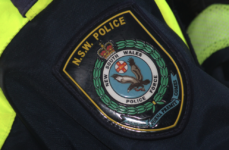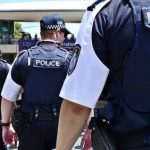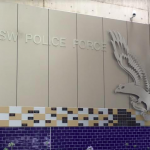NSW Police Officer Accused of Tampering with Evidence to Support False Criminal Charges

A New South Wales police officer has been charged with one count of tampering with evidence after an investigation by the state’s police watchdog, the Law Enforcement Conduct Commission, found that he falsely claimed that a member of the public made a death threat during a telephone call to a police station.
The story so far
24-year old constable Daniel Keneally, who is the son of former New South Premier Kristina Keneally, was working at Newtown Police Station in February 2021 when he received a telephone call from a member of the public, Mr Luke Brett Moore.
Constable Keneally then completed a notebook entry which claimed that, during the conversation. Mr Moore threatened to kill a police officer.
The constable then referred the allegation to the Fixated Persons’ Unit of the New South Wales Police Force, who then arrested and charged Mr Moore with two counts of using a carriage service to make a death threat under section 474.15(1) of the Criminal Code Act 1995 (Cth) – an offence which carries a maximum penalty of 10 years in prison.
Mr Moore was refused bail at the police station (known as ‘police bail’) and then refused bail in court.
But police faced one problem – Mr Moore had been dealt with unlawfully by officers several times in the past and, to protect his legal interests (which can amount to a lawful defence to unauthorised recordings), saw fit to record the telephone conversation constable Keneally.
After spending three weeks behind bars, Mr Moore was able to arrange for the recording to be accessed and – low and behold – he made no such threat.
In June 2021, police withdrew the charges against him.
Law Enforcement Conduct Commission
Mr Moore then made a formal complaint to the LECC which advised him it was not an appropriate matter for them to investigate – directing him to make an internal complaint to police.
It was only after Mr Moore took his complaint to members of the New South Wales parliament that the LECC commenced an inquiry into the incident.
It was not until earlier this year that the LECC completed its inquiry, reportedly finding that constable Kenneally had engaged in criminal conduct and recommending charges be brought against him over the fabrication.
The watchdog’s report has not been released to the public.
Officer charged
Constable Keneally was then charged with one count of tampering with evidence under section 317 of the Crimes Act 1900 (NSW), which carries a maximum penalty of 10 years in prison.
Mr Moore then received an apology from the New South Wales Police Force, who added that officer Keneally’s employment is now ‘under review’.
The officer will face Downing Centre Local Court on 17 November 2022.
Statement of victim
Mr Moore issued the following public statement on 4 October 2022:
“I have today been advised by the Law Enforcement Conduct Commission (LECC) that criminal proceedings have now been commenced against Constable Daniel Keneally alleging an offence of fabricating false evidence with intent to mislead any judicial tribunal contrary to s 317(b) Crimes Act 1900.
Whilst I welcome the news that criminal proceedings have now been commenced against Constable Keneally, the way this matter was initially investigated by the LECC, and the NSW Police, remains of significant concern to me.
The LECC had previously advised me that this was not a matter justifying their investigation and referred my allegations to the NSW Police to be dealt with internally by them.
The result of that investigation as verbally advised to me by Constable Kenneally’s Commander, Superintendent Sam Crisafulli, was that Constable Keneally had not acted with due care and diligence in the making of his statement, and that the matter was finalised.
When I attempted to legitimately voice my concerns with Superintendent Sam Crisafulli, he rudely terminated the call.
Only after my matter was then raised in the NSW Parliament by the Honourable Rod Roberts, did the LECC belatedly launch an investigation, having previously advised me that this was not a matter justifying their investigation.
More recently Commissioner Karen Webb has provided false evidence to the NSW Parliament concerning Constable Keneally’s employment status.
I have serious concerns about the ability of the NSW Police to investigate allegations of police misconduct, and the LECC’s ability to oversight those allegations.
As criminal proceedings have now been commenced against Constable Keneally, I will make no further public comment on this matter.”
Concerns regarding police accountability
It is indeed of grave concern when officers allegedly conduct themselves in such an appalling, criminal manner intending for a citizen to be falsely charged with a criminal offence – leading to arrest, charge, refusal of bail and weeks behind bars.
It is fortunate that Mr Moore recorded the conversation as it is fair to say that, in the absence of the recorded evidence, there is a significant possibility that a magistrate would have believed the officer’s alleged fabrication and falsely convicted an innocent person.
The remarks regarding the LECC’s reluctance to investigate are also of concern. The chronically under-resourced body, which has no power to discipline let alone prosecute police officers (and can only make recommendations) is fast becoming seen as a mechanism which overwhelmingly fails to investigate, or properly investigate, serious complaints against members of the police force.
In fact, the supposed ‘police watchdog’ investigates only around 2% of the complaints it receives, routinely directing victims to make internal complaints to police whereby police are left to police themselves.
It has been reported that Mr Moore is now seeking damages for malicious prosecution and unlawful imprisonment.
Offences against public justice in New South Wales
Tampering with evidence is one of many offences against public justice contained in the New South Wales Crimes Act 1900.
These offences are intended to protect the integrity of the justice system by bringing those who engage in conduct that undermines it to account and deterring those who might consider doing the same, including those such as police officers who are in positions of trust and power.
Other offences against public justice include:
- Disrespectful Behaviour in Court
- Contempt of Court
- Section 314 – Making a False Accusation
- Section 315 – Hindering an Investigation
- Section 315A – Threatening or Intimidating Victims or Witnesses
- Section 316(1) – Concealing a Serious Indictable Offence
- Section 316(2) – Obtaining a Benefit for Concealing a Serious Indictable Offence
- Section 316A(1) – Concealing a Child Abuse Offence
- Section 316A(4) – Obtaining a Benefit for Concealing a Child Abuse Offence
- Section 318 – Making or Using a False Official Instrument to Pervert the Course of Justice
- Section 319 – Perverting the Course of Justice
- Section 321 – Corruption of Witnesses or Jurors
- Section 322 – Threatening or Intimidating Judges, Witnesses, Jurors or Public Justice Officials
- Section 323 – Influencing Witnesses or Jurors
- Section 325 – Preventing, Obstructing or Dissuading Witnesses or Jurors from Attending Court
- Section 326 – Reprisals Against Judges, Witnesses, Jurors or Public Justice Officials
- Section 327 – Perjury
- Section 328 – Perjury With Intent to Procure Conviction or Acquittal
- Section 330 – Making a False Statement on Oath
- Section 331 – Contradictory Statements Given on Oath
- Section 333 – Subornation of Perjury
- Section 335 – Making a False Statement Pursuant to an Order Under the Commission Act 1995
- Section 336 – False Entry Into a Public Register
- Section 337 – Issuing an Instrument for an Improper Purpose
The offence of tampering with evidence in New South Wales
Tampering with evidence is an offence under section 317 of the Crimes Act 1900 (NSW), which carries a maximum penalty of 10 years in prison.
To establish the offence, the prosecution must prove beyond reasonable doubt that:
- You suppressed, concealed, destroyed, altered or falsified information knowing it is or may be required as evidence in a judicial proceeding, or you fabricated false evidence (other than by perjury), or you knowingly made use of false evidence, and
- You intended by doing so to mislead any judicial tribunal in judicial proceedings.
A ‘judicial proceeding’ is any proceeding in or before a judicial tribunal in which evidence may be taken on oath.
A ‘judicial tribunal’ is any person, including a coroner or arbitrator, or any court or other body authorised by law or by the consent of parties, which may conduct a hearing to determine any matter or thing.
Legal defences
Legal defences to the charge include duress and self-defence.
In the event you are able to raise evidence of a legal defence, the prosecution is then required to disprove that defence beyond a reasonable doubt.
If the prosecution is unable to do so, you are entitled to an acquittal.
Receive all of our articles weekly
Related Articles
RELATED LEGISLATION
- Section 314 Crimes Act 1900 | False Accusations
- Section 315 Crimes Act 1900 | Hindering Investigations
- Section 315A Crimes Act 1900 | Threatening or Intimidating Victims or Witnesses
- Section 316 Crimes Act 1900 | Concealing Serious Indictable Offence
- Section 316A Crimes Act 1900 | Concealing Child Abuse Offence
- Section 317 Crimes Act 1900 | Tampering with Evidence
- Section 318 Crimes Act 1900 | Making or Using a False Instrument to Pervert Course of Justice
- Section 319 Crimes Act 1900 | Perverting the Course of Justice
- Section 321 Crimes Act 1900 | Corruption of Witnesses or Jurors
- Section 322 Crimes Act 1900 | Threatening Judges, Witnesses, Jurors or Public Justice Officials
- Section 323 Crimes Act 1900 | Influencing Witnesses or Jurors
- Section 325 Crimes Act 1900 | Preventing Witness or Juror from Attending Court
- Section 326 Crimes Act 1900 | Reprisals Against Judges, Witnesses, Jurors or Public Justice Officials
- Section 327 Crimes Act 1900 | Perjury
- Section 328 Crimes Act 1900 | Perjury with Intent
- Section 330 Crimes Act 1900 | False Statement on Oath Not Amounting to Perjury
- Section 331 Crimes Act 1900 | Contradictory Statements on Oath
- Section 333 Crimes Act 1900 | Subornation of Perjury
- Section 335 Crimes Act 1900 | False Statement in Evidence on Commission
- Section 336 Crimes Act 1900 | False Entry on Public Register
- Section 337 Crimes Act 1900 | False Instruments Issued by Public Officers









